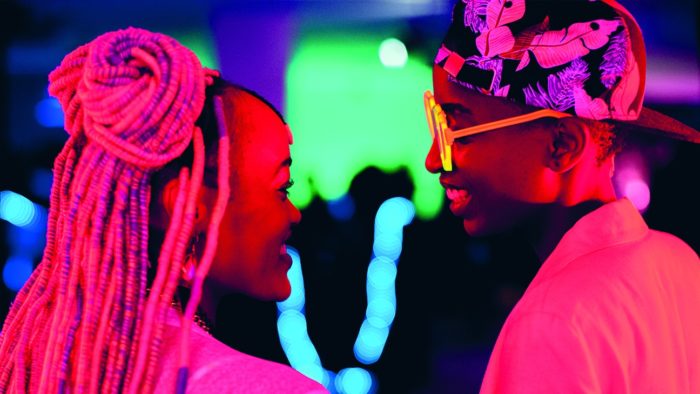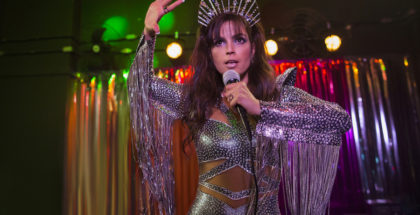VOD film review: Rafiki
Review Overview
Direction
8Acting
9Use of colour
10Laurence Boyce | On 19, Apr 2019
Director: Wanuri Kahiu
Cast: Samantha Mugatsia, Neville Misati, Nice Githinji
Certificate: 12
It was perhaps bitterly ironic that Rafiki, the first Kenyan film ever to play at Cannes (specifically in the ‘Un Certain Regard’ section), was banned in its home country for attempting to “legitimise lesbianism”. Falling victim to the prejudices and brickbats that form a central part of its story, Rafiki would be denied to those who would be particular in need of its core message of hope and tolerance. While the ban was ultimately lifted – and the film screened to packed out audiences in Nairobi – it is a sad reflection of the world in which we live that same sex relationships are still treated with fear.
Based on the award-winning short story Jambula Tree – from Ugandan author Monica Arac de Nyeko – Rafiki focuses on Kena (Samantha Mugatsia), an ordinary teenage Nairobian who helps her father, John (Jimmy Gathu) run a small shop, while he also campaigns in the local elections. One day, she meets the colourful and exotic Ziki (Sheila Munyiva) who happens to be the daughter of John’s electoral rival. Despite their ostensible rivalry, Kena and Ziki become closer to one another, and, after a series of dates, become romantically attached. But with the stigma attached to homosexuality, and the tension of the election, both have to keep their affection hidden and show the outside world that they are nothing more than friends (‘Rafiki’ being the Swahili word for ‘friend’). But there are always gossips and prying eyes and Kena and Ziki’s bliss looks soon to be destroyed.
Director Wanuri Kahiu eschews dour social realism for an explosively colourful affair that not only celebrates the vitality of everyday existence in Nairobi but also reflects the excitement and energy that comes with the beginning of any love affair. From Ziki’s brightly coloured hair to the dazzling riot of imagery and hues that make up their part of the world, Kahiu makes excellent use of this palette, muting the colours for more introspective moments and filling the screen for scenes of celebration.
The performances are beautifully judged with Mugatsia – who had never acted previously to this film – being a particular revelation. There’s a beautiful sense of both the empowerment and awkwardness of discovering one’s sexuality and she’s ably matched by Munyiva, with whom she has a great chemistry. While they bring the required energy to the roles, they also manage to bring a certain sense of subtlety.
This is also the key to the success of the film. While there are certain broad strokes to the narrative – with its small echoes of Romeo and Juliet, it would be easy to imagine it going down the road of a Shakespearean tragedy – everything still feels very authentic. Indeed, the film is at pains to show how easy it is for a society to become anti-homosexual. It’s not a case of moustache-twirling villains, but ordinary people who are fed a narrative from the church and the media that being gay is somehow wrong. Otherwise ordinary and decent people become prejudice, because they are taught that is the normal thing to do.
But for all the troubles that our protagonists face, Rafiki ends up being a film full of hope (indeed, that is one of the reasons it was originally banned – God forbid cinema should show gay people maybe being happy). And, while it is a film about tolerance and acceptance, Rafiki is a also a film of young love told from a female perspective. A beautiful and thought-provoking film.

















